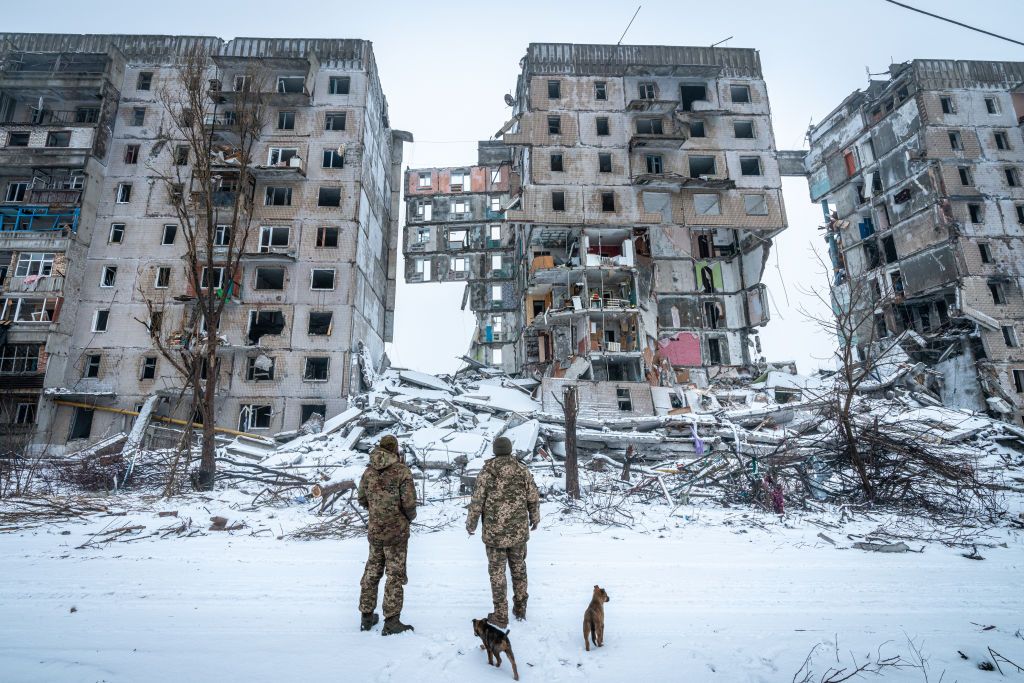Georgia’s fight for democracy is at a breaking point
Georgia’s electoral crisis exposes the ruling party’s authoritarian drift, jeopardizing the country’s democracy and European dreams.

A protestor throws a firecracker at police from behind a makeshift barricade during an anti-government protest in Tbilisi, Georgia, on Nov. 30, 2024. (Jay Kogler/SOPA Images/LightRocket via Getty Images)
On Oct. 26, Georgia held parliamentary elections under a proportional system with a 5% threshold. According to the Central Election Commission, the ruling Georgian Dream party secured 53.93% of the vote, earning 89 parliamentary mandates but falling short of a constitutional majority. Opposition parties received 37.79% of the vote, securing 61 seats but disputing the election results. Domestic and international observers deemed the elections unfree and unfair, prompting the European Parliament to call for new elections under international supervision and EU sanctions against top Georgian officials for their authoritarian practices.
Elections are foundational to democracy, representing vertical accountability by expressing the public will and ensuring fair, competitive access to political power. To be free and fair, elections require institutional guarantees such as freedom from coercion, equal campaign opportunities, transparency, and equitable resource allocation. Georgia’s parliamentary elections fell far short of these standards, raising significant doubts about their legitimacy.
In the pre-election phase, Georgian Dream pushed through a controversial law on foreign influence, targeting civil society organizations and media outlets. The controversial law sparked widespread protests, as it aimed to stifle political opposition and curtail NGO support for election monitoring. The ruling party also leaned heavily on anti-Western propaganda to deflect international scrutiny.
The introduction of e-voting without adequate training or transparency disadvantaged opposition parties and voters, raising concerns about procedural fairness. Election commissions were overrepresented by Georgian Dream members, undermining credibility, while voting machines’ internet connectivity and registry system sparked fears of manipulation.
Election-day irregularities compounded the problems. Election commission duties were not assigned by lot, as required by law, giving the impression of premeditated bias. Observers reported being denied access or even threatened by police, while ruling party surveillance cameras at polling stations violated voter secrecy. Additionally, ballot ink leaked, allowing third parties to identify voters’ choices. Although the Tetritskaro City Court ruled this a violation of ballot secrecy, the Tbilisi Court of Appeal overturned the decision in favor of the Central Election Commission.
Vote-counting further revealed discrepancies, including mismatched protocols and wrongful vote allocations that impacted parliamentary seat distribution.
In the post-election phase, Georgian Dream ignored constitutional safeguards, convening parliament despite pending legal challenges to MP election results. Georgian President Salome Zurabishvili challenged the election’s legality in the Constitutional Court, citing violations of ballot secrecy and universal suffrage. Georgian Dream pressed forward regardless, consolidating power and threatening to outlaw opposition parties with support from a judiciary loyal to the ruling party.

International observers deemed the elections uncompetitive and marred by undue influence, undermining confidence in the electoral process and the legitimacy of Georgia’s democracy.
Georgian Prime Minister Irakli Kobakhidze exacerbated the crisis by announcing a suspension of Georgia’s EU accession bid until 2028, defying the public’s pro-European aspirations enshrined in the Georgian Constitution. The decision ignited nationwide protests involving diverse political, social, and economic groups. Demonstrators demanded a democratic and European future, despite brutal crackdowns by riot police and special forces. Reports documented severe bodily harm inflicted on detainees, including journalists, in attempts to suppress dissent.
In solidarity with the Georgian people, the United States suspended its strategic partnership with the Georgian government. U.S. lawmakers introduced bills, such as the “Georgian People’s Act” and “MEGOBARI Act,” to counter Georgian Dream’s authoritarian drift. Meanwhile, the Baltic states imposed sanctions on Georgian leaders responsible for democratic backsliding.
Georgian Dream’s actions have jeopardized Georgia’s Euro-Atlantic aspirations and democracy. Exploiting fears of war with Russia, the ruling party used pro-government propaganda to divert attention from domestic failures and justify authoritarian policies. This strategy risks isolating Georgia internationally while falsely suggesting Russian acquiescence to reintegrating Abkhazia and South Ossetia.
To counter this authoritarian slide, consistent and widespread mobilization is essential. Zurabishvili has united opposition parties to lead a pro-European movement and advocate for an interim government to oversee new elections under international supervision.
Georgia’s resilience demonstrates the power of grassroots democratization. The unwavering determination of its people to defend democratic values and align with the European Union sends a clear signal to the U.S. and EU: stronger international support is crucial to constraining authoritarian behavior and ensuring democracy becomes the only game in town.
Editor’s Note: The opinions expressed in the op-ed section are those of the authors and do not necessarily reflect the views of the Kyiv Independent.
Stay warm with Ukrainian traditions this winter. Shop our seasonal merch collection.












